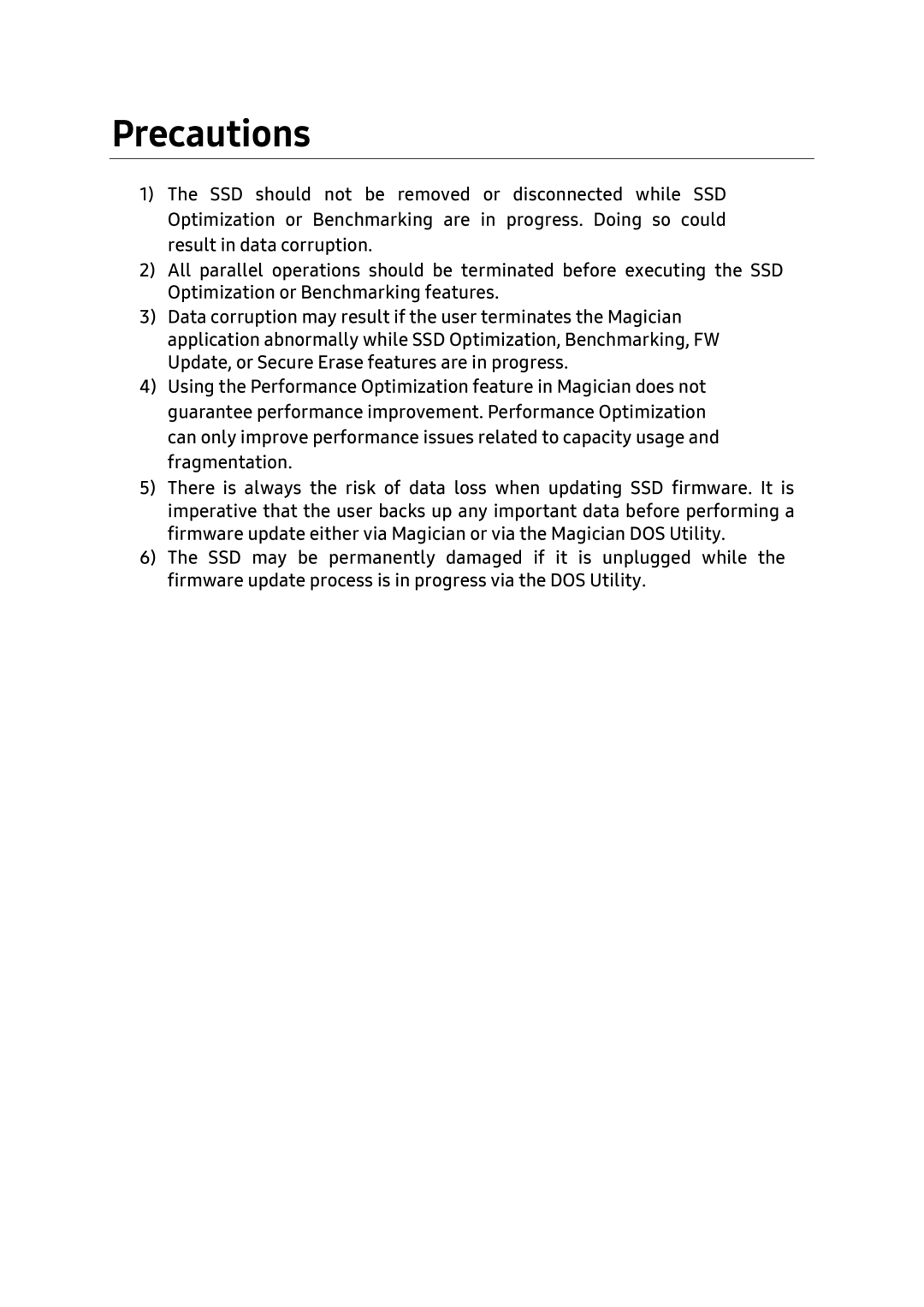MZ-7TE750Z, MZ-7TE250Z, MZ-7TE750BW, MZ-7TE500Z, MZ-7TE500LW specifications
Samsung's SSD lineup includes several notable models, among which the MZ-7TE250KW, MZ7TE250BW, and MZ7TE120KW stand out for their robust performance and advanced technology. These Solid State Drives (SSDs) are designed to enhance computing experiences across various applications, ranging from personal computing to enterprise storage solutions.The Samsung MZ-7TE250KW and MZ7TE250BW are both 250GB SSDs, while the MZ7TE120KW offers a capacity of 120GB. All three models utilize NAND flash memory technology, which enables faster data access speeds compared to traditional hard drives. This feature is critical for users looking for quick boot times and rapid file transfers.
One of the prominent features of these SSDs is their use of Samsung's proprietary 3D V-NAND technology. Unlike conventional 2D NAND, 3D V-NAND stacks memory cells vertically, which increases density and efficiency. This leads to higher performance levels while also improving the endurance of the drives, making them suitable for heavy usage and demanding applications.
Performance-wise, the MZ-7TE250KW, MZ7TE250BW, and MZ7TE120KW exhibit impressive read and write speeds. The typical sequential read speeds can reach up to 540 MB/s, while sequential write speeds can perform at around 520 MB/s, depending on the model and workload. This makes them ideal for users who frequently manage large files, such as video editing professionals or gamers.
In terms of reliability, all three models feature Advanced Wear Leveling and Garbage Collection algorithms, which help redistribute data evenly across the memory cells, extending the lifespan of the SSD. Additionally, these drives support AES 256-bit hardware encryption, ensuring that sensitive data is kept secure.
Another significant characteristic is their form factor. The MZ-7TE250KW and MZ7TE250BW are designed in the 2.5-inch form factor, making them compatible with most laptops and desktops, while the MZ7TE120KW can cater to various compact systems that require a smaller footprint. They also come equipped with a SATA III interface, enabling simple setup and compatibility with a wide range of devices.
In conclusion, the Samsung MZ-7TE250KW, MZ7TE250BW, and MZ7TE120KW represent a combination of speed, reliability, and security. Their advanced technologies and thoughtful design make them excellent choices for individuals and businesses looking to optimize their storage solutions, ensuring a faster and more efficient computing experience.
